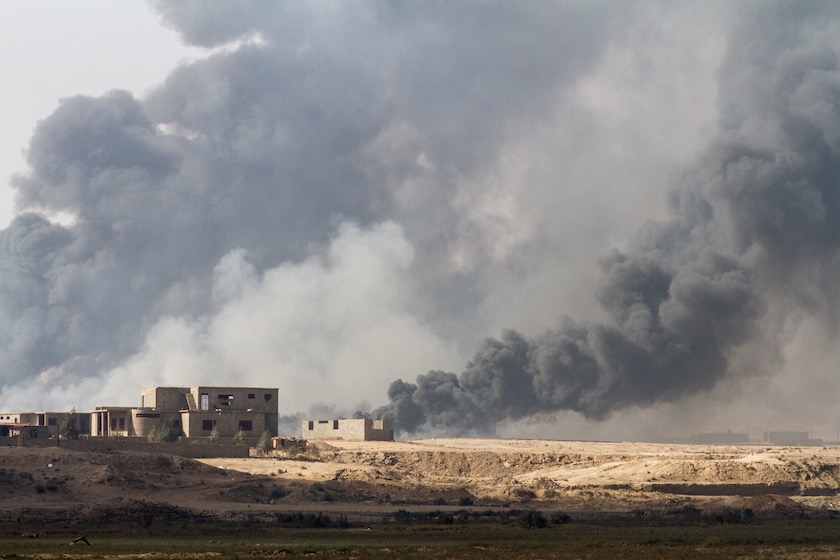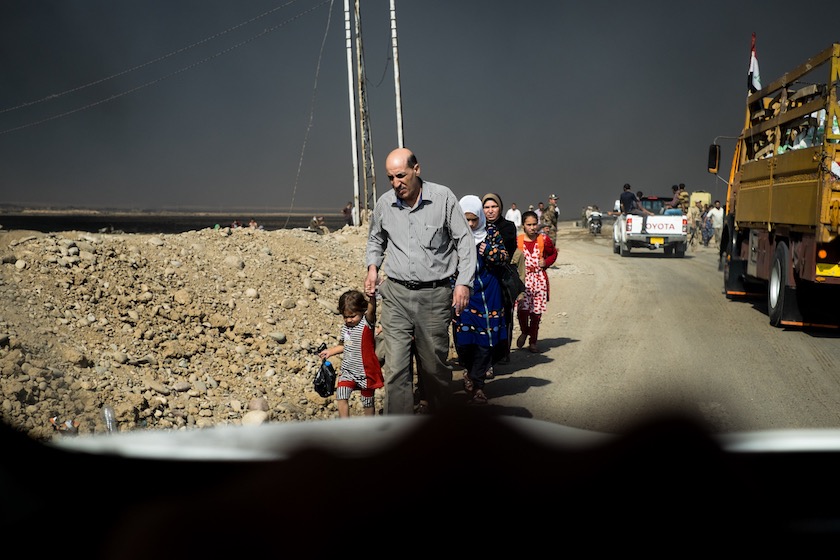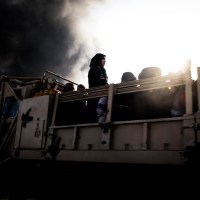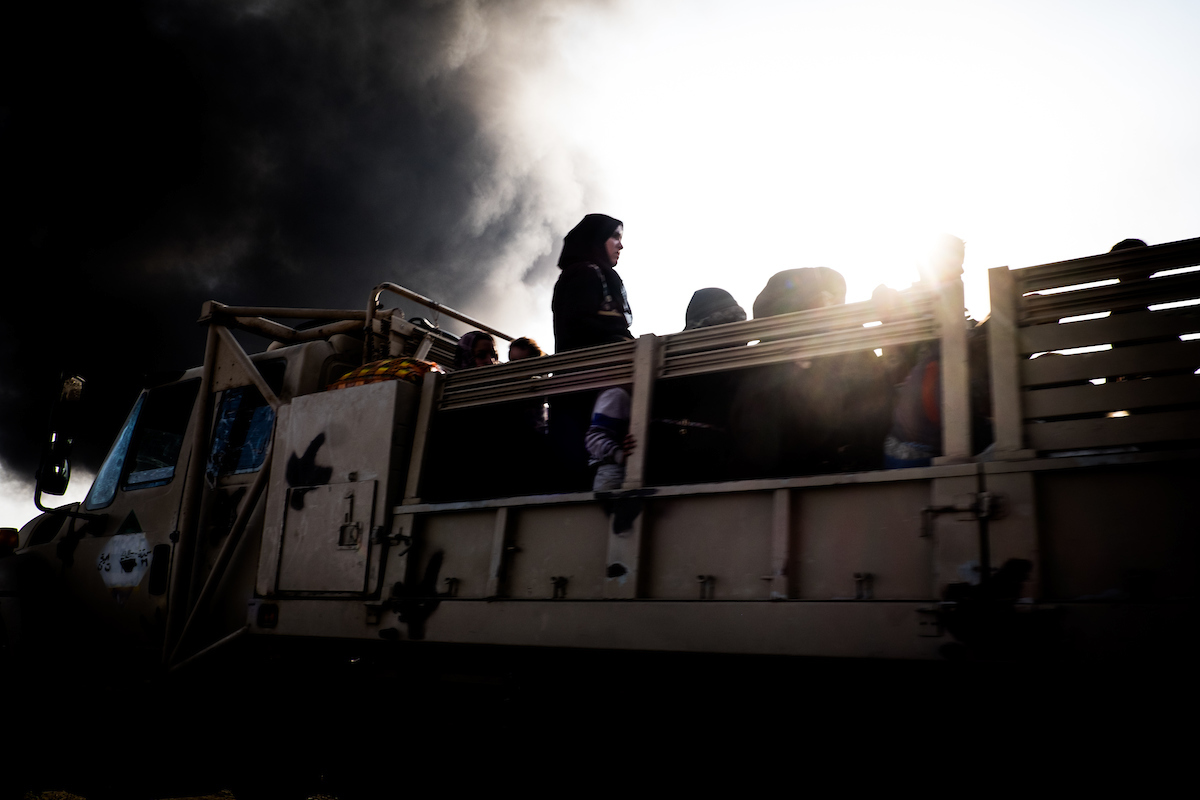The last oil fires near Mosul were finally put out in April, according to Rudaw Media Network.
Heavy black smoke filled the skies over northern Iraq for months. The fires were set by ISIS militants in the early days of the Mosul Offensive, as they were forced to retreat north.
The smoke was constantly in view during our aid deliveries south of Mosul, as you showed up with food for people all along the Mosul corridor, as you built a way station so fleeing families could find rest and urgent medical care, and as you turned a former ISIS bomb factory into a staging area filled with food and water for thousands.
These fires, some of which burned for eight months, were more than just a nuisance. They’re an environmental disaster in a country that’s seen too much environmental damage already. The long-term health effects could last years.
Violence unmakes the world. It pollutes the very air we breathe. Much like the months-long effort to put out these oil fires, the work of unmaking violence takes time. That’s why we need you to keep showing up for families in and around Mosul.
You can read the full Rudaw story below.
Mosul families urgently need food, water, and medical care. Please give today.

QAYYARAH, IRAQ—After months of battling a number of burning oil wells set ablaze by ISIS in the outskirts of the town of Qayyarah last year the Iraqi government announced last month that all the fires have been put out.
Following the recapture of Shargat and Qayyarah—two oil-rich towns in northern Iraq by the Iraqi army last year—ISIS no longer holds any oil well in Iraq, forcing the group to rely on other sources for income and fuel.

Iraq’s Minister of Oil said that the Iraqis were able to control the fire in a “record time” without asking for help from the international companies, which saved Iraq’s central bank millions in hard cash.
According to Iraq’s oil ministry, there are 50 oil wells in the town, 34 of which have been damaged as the result of fighting between Iraqi forces and ISIS.
ISIS militants set on fire 18 of the wells last summer to create a protective screen against airstrikes.
Expressing happiness over the end of the smoke that shrouded the area for more than eight months, locals told Rudaw they were concerned that unless properly sealed, the wells may catch fire again.
One local described the oil on the surface as “an oil lake” that poses health risks, calling on the government to deal with the issue properly.
ISIS militants sabotaged the oil infrastructure in Qayyarah and started fires that could be seen by NASA satellites.

The space agency pointed out on its website last year that the “event recalls fires in neighboring Kuwait during the 1990s Persian Gulf War,” after Saddam Hussein’s soldiers sabotaged Kuwait’s oil infrastructure as they were being forced to retreat by the US-led coalition.
“Like the current fires in Iraq, many of Kuwait’s fires produced thick, dark smoke,” an atmospheric scientist at NASA named Ralph Kahn explained.


